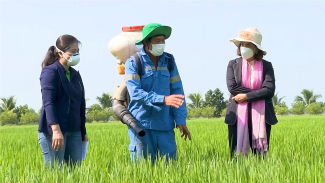Estimating public and private sectors' union wage effects in Ghana: is there a disparity?
PurposeThis study seeks to estimate union wage effect in the public and private sectors of Ghana, respectively. It also seeks to ascertain whether the union wage effect in the two sectors varies.Design/methodology/approachThe authors use data from the Ghana Living Standards Survey 6 (GLSS 6, 2012/2013) and Ghana Labour Force Survey (GLFS, 2015).

